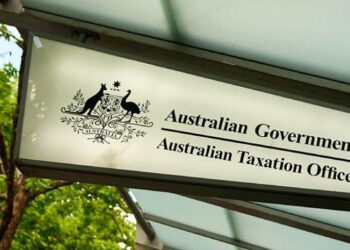The case of Nifuno Pty Ltd atf Stephen Forbes Pension Fund v Chief Commissioner of State Revenue involved an SMSF called the Skanda Constructions Pty Ltd Employee Superannuation Fund. The applicant, Nifuno Pty Ltd, is the trustee of the fund.
Nifuno Pty Ltd was also the trustee of a second SMSF, the Stephen Forbes Pension Fund.
The first SMSF previously had both a contribution account and a pension account. The second fund was created following the introduction of the transfer balance cap. The sole member decided to transfer the pension benefits from the first fund to the newly created fund.
The manner in which this occurred involved the transfer of a property by a deed from Nifuno as trustee of the first fund to itself as trustee of the second SMSF. This meant that all the pension benefits in the first fund were extinguished.
The sole member of both funds sought to rely on the operation section 61 of the Duties Act 1997 (DA).
Section 61 applies to a “relevant transfer that occurs in connection with a person:
(a) Ceasing to be a member of, or otherwise ceasing to be entitled to benefits in respect of, a superannuation fund that is a complying superannuation fund or was a complying superannuation fund within the period of 12 months before the transfer was made; and
(b) Becoming a member of, or otherwise becoming entitled to benefits in respect of, another superannuation fund that is also a complying superannuation fund or will, in the opinion of the trustees of both funds concerned, be a complying superannuation fund within 12 months after the transfer is made”.
The section states that “the duty chargeable on a relevant transfer to which [the] section applies is ad valorem duty in accordance with this Chapter or $500.00, whichever is the lesser”.
The Chief Commissioner of State Revenue argued that s61 (1) DA could not apply because the member remained entitled to benefits from the first fund on the basis that the words in the subsection “ceasing to be a member of, or otherwise ceasing to be entitled to benefits in respect of a superannuation fund” requires to be read as a composite expression so that the relevant member cease to be entitled to, in effect, all benefits in respect of the superannuation fund.
The applicant argued that the words should be interpreted to cover his situation where he ceased to be entitled to pension benefits in respect of the first fund and that it was not necessary that he lose entitlement to all benefits in the first fund for s61 DA to apply.
Both parties referred to the words used in the second reading speech of the minister when the forerunner to s61 DA was introduced in 1991 as s82 of the Stamp Duties Act 1920 by the Stamp Duties (Amendment Bill).
In his decision, senior tribunal member Roger Lyne Hamilton S.C. stated that while the Chief Commissioner’s argument had some attractions, it also had some difficulties.
“In a number of cases when an individual ceases to be a member of a superannuation fund, they cease to be entitled to benefits from that fund. But this is not necessarily a universal result,” he said.
“For example, a husband and wife may both be members of the same fund, and be entitled to reversionary benefits on the death of the spouse. If one spouse ceased to be a member of the fund, they would not cease to be entitled to all benefits in the fund. Here [the member] did not cease to be a member of fund one, but ceased to be entitled to pension benefits from it.”
The tribunal said that it was therefore arguable whether the words “or otherwise ceasing to be entitled to benefits” requires a result equivalent to a cessation of membership.
“There is no explicit requirement that the continuing member cease to be entitled to all benefits in the fund. It may be enough if a relevant transfer occurs in connection with a cessation of entitlement to part of the benefits from a fund,” said Mr Hamilton.
“Thus, in my view, there is no clear meaning to the words in the text. I do not consider that I can simply read the word ‘all’ into the text of the provision before ‘benefits’. Accordingly, the tribunal may then look to the context.”
He referred to the second reading speech which established that the provision is aimed at relieving liability for ad valorem duty on the transfer of assets between complying superannuation funds by providing for a fixed rate when superannuation funds are split or merged, including where a member transfers from one to another.
“There appears to be a purpose of harmonising with income tax concessions and other stamp duty concessions for superannuation funds, as there was said to be an inequity otherwise. This inequity is the mischief which was to be remedied. There is also an indication that a broad view was taken of the transactions covered, as the minister referred to transactions of this nature,” he stated.
“The minister also referred to circumstances which included a transfer of members, further indicating an expansive approach. It may also be thought that by restricting the concession to relevant transfers between complying superannuation funds that opportunities for ‘gaming’ the system were limited.”
Mr Hamilton stated that it was not necessary to adopt a narrow, pedantic approach.
“It is relevant to note that [the applicant] is the sole member of both superannuation funds, both are complying funds, and he is now receiving pre-existing pension benefits from the new fund rather than the old, funded by the transfer of the property. It appears inequitable that this benign transaction to adapt to the federal government’s new policy should not be eligible for the concessional rate of duty,” it stated.
“I would therefore set aside the assessment and remit the matter to the Chief Commissioner for assessment pursuant to s61 DA.”



The outcome was the right one but the rationale was “interpretive”.
Once the member ceased his pension in one fund, it lost it character as a pension. On rollover, he would have had to elect, and be eligible to receive a pension in the 2nd fund.
This interpretation would have made the decision sounder. It will be interesting to see if there is any movement to change the wording of s61 following a less than crisp determination.
This detailed decision by Senior Member Roger Lyne Hamilton SC shows a great understanding of the strategic benefit of quarantining pension benefits, in certain circumstances, to a separate fund. It is good to see litigation against a regulator who was seeking to limit the concession that applies for splitting funds. I just hope they transferred the pension rather than a commutation as that sees the pension cease and possibly a CGT issue. There are always many balls in the air for even the simplest SMSF strategy.
What a waste of tax payers money that this would even go to court!
Bloody oath!